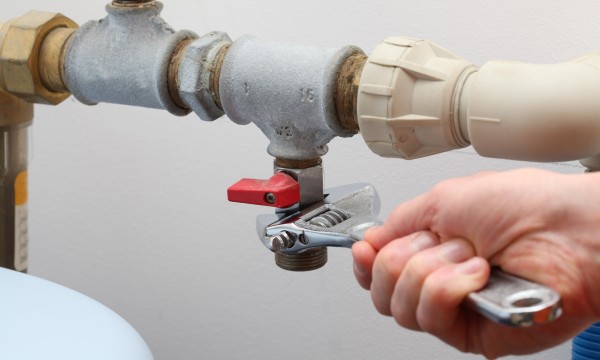Handling the Usual Hot Water Heater Emergency Challenges
Handling the Usual Hot Water Heater Emergency Challenges
Blog Article
Almost everyone maintains their own idea when it comes to The Importance of Water Heater Maintenance.

A water heater is just one of the most important fundamental appliances that can be located in a home. With hot water heater, you don't need to undergo the tension of home heating water by hand whenever there is a demand to wash, do the laundry, or the meals. Nonetheless, there is constantly an opportunity that your water heater would certainly break down just like a lot of mechanical devices.
It is important to note any little breakdown and tackle it quickly before things get out of hand. A lot of times, your water heater begins to malfunction when there is an accumulation of debris as a result of constant use. As a preventative measure, routine flushing of your hot water heater is suggested to stop sediment accumulation and avoid functional failure.
Typical water heater emergencies and just how to deal with them
Inadequate hot water
Taking care of an insufficient supply of hot water can be discouraging. It might be that the water heater can not sustain the hot water need for your apartment or condo. To manage this trouble, you can try to adjust your heating system's temperature level dial as well as await a few mins. You can ask for the help of an expert plumber if the problem lingers. You could upgrade your water heating unit to one with a bigger ability.
Changing water temperature.
Your water heating system can start generating water of various temperature levels typically ice hot or cool warm. There may be a requirement to replace either the thermostat or the home heating device of your water heating system.
Dripping hot water heater container.
In this situation, you should turn off your water heating unit, enable it to cool down, as well as very carefully look for the resource of the issue. At times, all you require to do is to tighten up a couple of screws or pipe connections in situations of minor leakages. If this doesn't work and the leakage lingers, you might need to utilize the solutions of a professional for an ideal substitute.
Tarnished or smelly water
When this occurs, you need to know if the problem is from the container or the water source. If there is no funny scent when you run cool water, then you are certain that it is your water heater that is faulty. The stinky water can be created by corrosion or the build-up of germs or sediments in the water heating system tank.
Conclusion
Some house owners neglect little caution as well as minor faults in their hot water heater system. This only brings about more damages as well as a possible total malfunction of your home appliance. You must deal with your water heater faults as quickly as they come up to stay clear of more costs as well as unnecessary emergency difficulties.
With water heating systems, you do not require to go through the stress and anxiety of home heating water manually every time there is a need to take a bath, do the washing, or the meals. It might be that the water heating system can not support the hot water demand for your apartment. Your water heating system can begin generating water of various temperatures generally ice cool or hot hot. If there is no amusing odor when you run cold water, then you are certain that it is your water heater that is damaged. The odiferous water can be triggered by corrosion or the buildup of bacteria or debris in the water heater storage tank.
Common Water Heater Issues and What You Should Do
What Type of Water Heater Do You Have?
Before we begin it’s first important that you identify the type of water heater you have on your property. There are two main types of water heaters out there: conventional and high efficiency.
Both of these types of products typically use either gas or electricity to heat power. There are also solar water heaters that use a thermal collector on the roof or yard to heat the water.
While these models are not as common, they can cut heating costs in half. In this article, we will focus on conventional and high efficiency.
How Do My Electric and Gas Water Heater Work?
Though they look similar, electric and gas water heaters work very differently. It’s important to know their basic function because often problems can be specific to the heating source.
In the electric model, a thermostat on the side of the machine detects the temperature of the water in the tank. When the temperature needs to rise electricity flows to a heating element suspended in the water.
Gas models also use a thermostat device — typically with a mercury sensor at the tip and an additional sensor called a thermocouple. The thermocouple detects whether the pilot light is on and controls the flow of gas.
When the thermostat drops below the appropriate level gas is released which becomes ignited by the pilot light. The flame heats the bottom of the water tank which causes hot water to rise and cold water to drop.
This natural circulation continues until the water reaches the desired temperature. Then, the thermostat triggers the gas control valve to shut off the flow of gas.
What Are the Most Common Issues and How Do You Fix Them?
https://happyhiller.com/blog/common-water-heater-issues-and-what-you-should-do/

We had been shown that write-up about Is Your Water Heater Leaking? through an acquaintance on a different domain. If you please set aside a second to share this entry if you enjoyed it. Thank you so much for your time invested reading it.
Reliable help? Dial. Report this page